Search Images
Browse Content (p. 235)
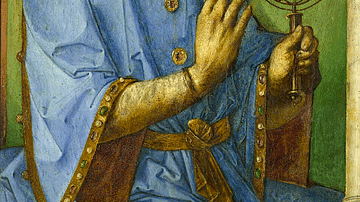
Image
Claudius Ptolemy Portrait
A 15th-century portrait of the astronomer and geographer Claudius Ptolemy (c. 100 - c. 170 CE) attributed to Justus van Gent or Pedro Berruguete. (Louvre Museum, Paris)
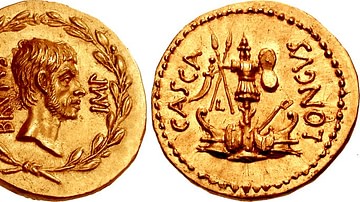
Image
Gold Coin of Brutus
Aureus of Brutus, thought to have been struck in the late summer or autumn of 42 BCE at a military mint travelling with Marcus Junius Brutus and Cassius in western Asia Minor or northern Greece. Obverse: portrait of Brutus Reverse: trophy...
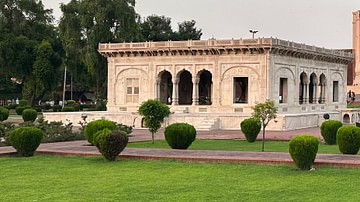
Image
Baradari
Hazuri Bagh Baradari (formerly known as Ranjit Singh's Baradari), built by Sikh ruler Maharaja Ranjit Singh in 1818, in Lahore, Pakistan. In Urdu, bara means "twelve," and dar means "door." Thus, baradari is the name given to a building...
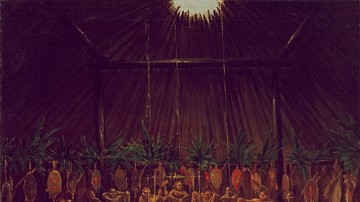
Image
Medicine Lodge, Mandan O-kee-pa Ceremony
Interior View of the Medicine Lodge, Mandan O‑kee-pa Ceremony, oil on canvas by George Catlin, 1832.
Smithsonian American Art Museum
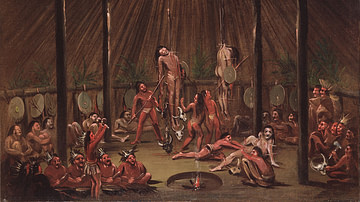
Image
The Cutting Scene, Mandan O-kee-pa Ceremony
The Cutting Scene, Mandan O-kee-pa Ceremony, oil on canvas by George Catlin, 1832.
Denver Art Museum.
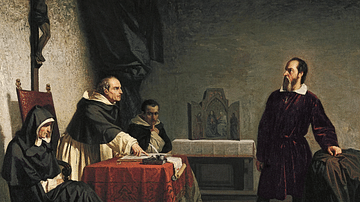
Image
Galileo Facing the Roman Inquisition
An 1857 painting titled Galileo Facing the Roman Inquisition by Cristiano Banti. It shows the trial for heresy of the mathematician and astronomer Galileo (1564-1642) in 1633. Galileo was found guilty and sentenced to live under house arrest...
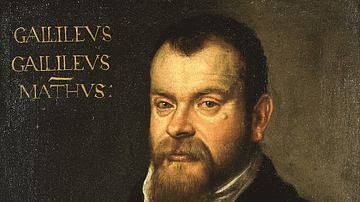
Image
Galileo by Porcia
A c. 1602 oil-on-canvas portrait of Galileo (1564-1642) by Francesco Porcia. (Royal Museums Greenwich, London)
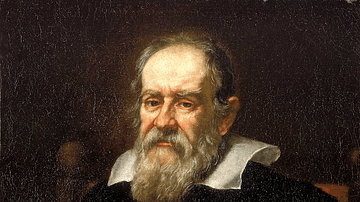
Image
Galileo by Sustermans
A c. 1640 portrait of Galileo (1564-1642) by Justus Sustermans. (Royal Museums Greenwich, London)
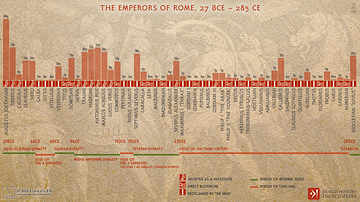
Image
The Emperors of Rome, 27 BCE - 285 CE
An infographic depicting the timeline of the emperors of Rome from the ascension of Caesar Augustus (Octavian) in 27 BCE until the end of the Crisis of the Third Century and the onset of the Tetrarchy under Diocletian "Jovius" in 285 CE through...

Image
Second-Wave Civilizations Population Centers
A map illustrating the rise and spread of the Second-Wave Civilizations between c. 500 BCE and 200 CE, including the most notable urban settlements where civilizations flourished, transforming societies through trade, cultural exchange, and...